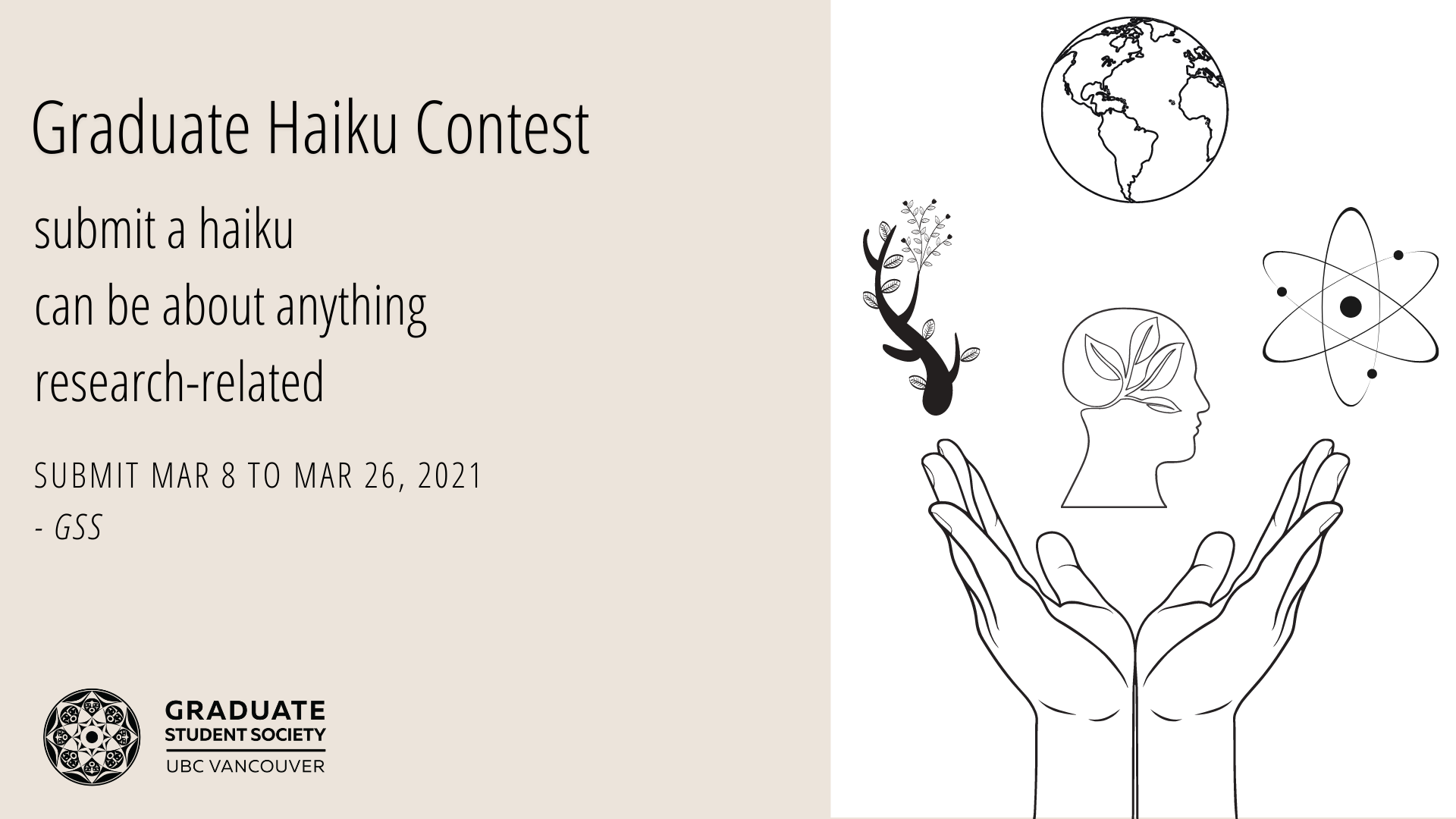The University of British Columbia Graduate Student Society (UBC-GSS) is delighted by today’s announcement by the BC Government of the extension of the BC Graduate Scholarship with $3.75 million in additional funding over the next two years. The investment supports 250 scholarships for students in graduate degree programs at 10 public post-secondary institutions. Each award will be for a minimum of $15,000.
The BC Graduate Scholarship, introduced by the BC government in 2018, provides merit-based funding to hundreds of highly skilled and talented graduate students across the province. The Program plays a key role in helping the province attract top talent to pursue graduate education in BC.
Increasing government support and funding for graduate education has been a priority advocacy item for the UBC-GSS. The Society has been a strong advocate for extension of the BC Graduate Scholarship since its inception in 2018. Recommendations to make the BC Graduate Scholarship program a permanent fixture in the post-secondary funding landscape was a top priority item in UBC-GSS 2020 BC Budget Submission.
“We’re delighted that the BC Government has chosen to support the continuation of the BC Graduate Scholarship program. Extending this funding has been an advocacy priority for successive GSS Executive teams and we have been lucky to have strong support from the Faculty of Graduate and Postdoctoral Studies and partners at other Universities in making that case to the province. It is exciting to see that work bear fruit.”
Kimani Karangu, UBC-GSS President
“Graduate students are the drivers of research and innovation in BC at a time when we need it most. They play a key role in helping BC address many of the pressing challenges we face today, like climate change and COVID-19, by developing innovative new solutions. This funding is a much-needed investment to support and revamp BC’s research and innovation capacity. In an increasingly knowledge-driven economy, grad students are the future researchers, knowledge leaders and experts we need to develop the next stage of BC’s economy post-COVID19.”
Alireza Kamyabi, UBC-GSS VP External Relations
For Further Information contact:
- Kimani Karangu, President UBC Graduate Student Society
- president@gss.ubc.ca
- Alireza Kamyabi, VP External Relations UBC Graduate Student Society
- vpexternal@gss.ubc.ca




